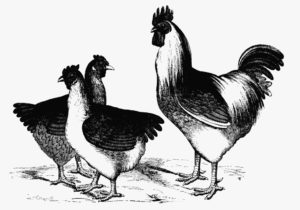A Sacred Act
February 1, 2018Podcast: Download (Duration: 2:39 — 2.4MB)
Subscribe: More
 How do we live in honorable relationship with the other beings who share our planet? We can start by thinking about our food. If we eat meat or fish or eggs or milk, who are the animals that give us their lives, so we can have food? In our society, it is difficult to honor the animals who are most important to us. Chickens, cattle and pigs are the most widely eaten animals in the United States. Most of them are raised in horrible conditions. When we begin to open our hearts to our connection with other animals, we have to ask ourselves about the animals we eat for food.
How do we live in honorable relationship with the other beings who share our planet? We can start by thinking about our food. If we eat meat or fish or eggs or milk, who are the animals that give us their lives, so we can have food? In our society, it is difficult to honor the animals who are most important to us. Chickens, cattle and pigs are the most widely eaten animals in the United States. Most of them are raised in horrible conditions. When we begin to open our hearts to our connection with other animals, we have to ask ourselves about the animals we eat for food.
I think about the chicken—the animal most eaten in the United States.
Sometimes they have been given a bad reputation in our culture—we call someone chicken when they are lacking in courage. But chickens lay eggs that feed us, and their bodies feed us. When allowed to roam a yard, chickens will kill and eat the ticks that can cause Lyme disease. They have their own nobility and beauty and give so much to us. If we respected the chickens, how could we tolerate the agricultural practices that confine them to torturous cages?
To eat is a sacred act. Often, we eat mindlessly. We don’t pay attention. When we eat, we take one part of Mother Earth, and unite it with another part of Mother Earth—our own bodies. Eating is necessary for life, and yet includes death of some kind, whether of animals or plants. The great mystery of life and death can be present to us every single day in the ordinary communion of eating a meal. But most of the time we are separated from that mystery because we can pick up our food from the grocery store, heedless of the reality that this food is from living beings.
Some people, seeking to give greater respect to our fellow creatures, make a choice to refrain from eating meat. That can be a powerful practice. For my part, I try to honor the sacredness of all beings by thanking the creatures who have given their lives that I might eat. I try to buy meats of animals who have been raised without cages, without chemicals, with some ability to live out their natural lives before they become our food. In our culture it is challenging, but becoming more and more possible. It begins by making that one simple change—to recognize and celebrate the beings who provide our food at each meal.
Excerpted from Finding Our Way Home: A Spiritual Journey into Earth Community
- Finding Restoration Through Stories - April 1, 2019
- A Sacred Act - February 1, 2018
- Forgiving the Broken - September 1, 2015
Comments are closed.
Quest Monthly Print Edition
Recent Issues
Latest Spiritual Reflection Posts
Weekly Newsletter
About
Quest for Meaning is a program of the Church of the Larger Fellowship (CLF).
As a Unitarian Universalist congregation with no geographical boundary, the CLF creates global spiritual community, rooted in profound love, which cultivates wonder, imagination, and the courage to act.
Contact
Church of the Larger Fellowship Unitarian Universalist (CLFUU)
24 Farnsworth Street
Boston MA 02210

I love that you are encouraging people to think about what they eat and know where it comes from. However, it is not honorable to say you are thankful to the animal that gives it’s life for you to eat it. Animals do not give their lives, butchers take them. This is an obfuscation of animal agriculture. If you truly honor and respect the animals that we share this planet with, you would not eat them.